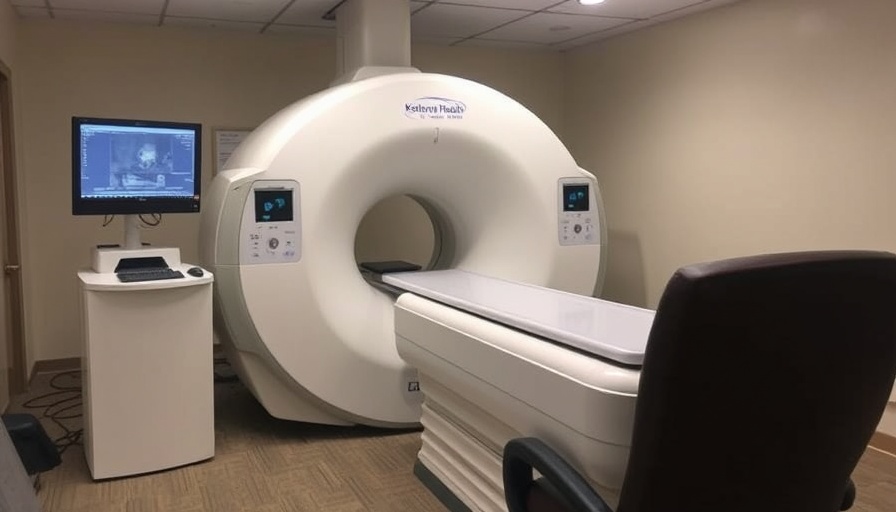
Rebuilding Trust and Technology After Ransomware Attacks
Kettering Health's recent experience with a ransomware attack serves as a sobering reminder of the vulnerabilities faced by healthcare organizations today. After a major cyberattack that caused disruptions across its network and led to the cancellation of elective surgeries, Kettering was able to restore its radiation oncology services in just five days. The rapid recovery not only highlights the resilience of healthcare networks but also emphasizes the critical importance of cybersecurity in the health sector. This incident underscores the urgent need for robust technological frameworks and quick response protocols in an era where patient data safety is paramount.
Patient Care Continuity: A Collaborative Response
Upon succumbing to the ransomware attack on May 20, Kettering Health took immediate action by collaborating with several local hospitals, including Dayton Children’s and Premier Health. This network of cooperation ensured that critical patient care continued without significant disruption. As quoted by Kettering's CEO Mike Gentry, the support provided by local health systems showcases the spirit of collaboration among healthcare providers during times of crisis. This collective effort is essential not only for patient safety but also for maintaining trust within the community when a healthcare system faces technological setbacks.
The Financial Implications of Cybersecurity in Healthcare
For CEOs and business managers in healthcare, the financial ramifications of ransomware attacks extend far beyond immediate losses. Each minute systems are down can mean a significant loss of revenue, not to mention the cost associated with restoring compromised data and enhancing security measures. The Kettering Health incident brings to light a larger issue: investment in cybersecurity is not merely an option; it's a necessity for protecting invaluable patient data and ensuring seamless service delivery. With the surging costs of repairs and ransom demands, immediate attention should be directed toward implementing preventative strategies, as the financial stakes have never been higher.
Long-Term Consequences of Cyberattacks in Healthcare
While Kettering Health's swift recovery is hopeful, the implications of cyberattacks on healthcare facilities often extend well beyond the immediate disruption. For patients, especially those undergoing cancer treatments, delays in appointments or disruptions in care can have significant health implications. There is also a psychological dimension to consider; trust may be eroded if patients feel their sensitive health data is at risk. Therefore, addressing cybersecurity effectively not only safeguards data but also restores public confidence in healthcare systems.
Learning from the Past: Strengthening Cyber Resilience
The Kettering Health ransomware attack can serve as an essential case study in the need for transparent policies and proactive measures in cybersecurity protocols in healthcare. As technology continually evolves, so too must the strategies to protect it. Organizations can learn from Kettering’s experience by developing comprehensive cybersecurity training for staff, creating incident-response playbooks, and routinely assessing their systems for vulnerabilities. Furthermore, investing in robust technology solutions to monitor and prevent potential breaches is critical to maintaining patient care and safety.
Conclusion: A Call to Action Beyond the Crisis
The rapid recovery of Kettering Health’s radiation oncology program is commendable, but it also highlights a pressing call to action for healthcare organizations. As ransomware attacks continue to become more sophisticated, the focus must shift from merely responding to developing preventative infrastructures. Engaging patients in discussions about how their data is protected can also prove beneficial in restoring trust. For CEOs and business professionals, the implications of strengthening cybersecurity extend across patient care continuity, financial stability, and the overall integrity of the healthcare system.
 Add Row
Add Row  Add
Add 




 Add Row
Add Row  Add
Add 

Write A Comment